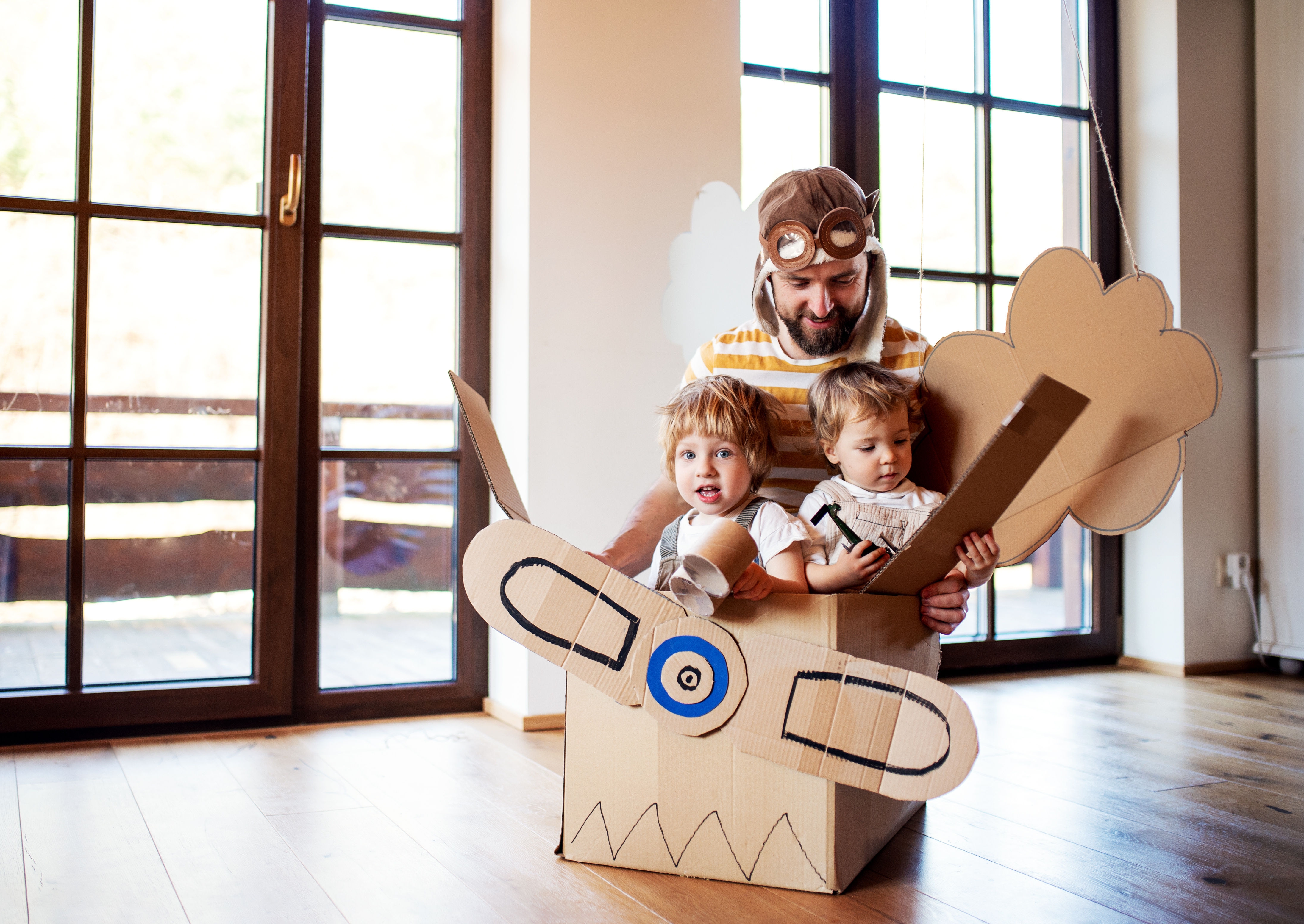Family-time is a-plenty during isolation (which is wonderful). Feeling cooped-up and frustrated is also common right now (which is a bit less wonderful). You’re not crazy to feel stir-crazy, but you and your family might benefit from trying some of these tips to avoid cabin fever at home.
Stimulate the senses
Sight, smell, touch, sound, taste – your five best friends when you’re feeling understimulated!
Leave music or a TV show on for background noise. Peace and quiet is nice, but sometimes breaking up the silence can lift the energy in your house. Try to find an artist or TV show everyone enjoys or take turns choosing. Try using headphones if you want some auditory stimulation when others want some quiet time.
Practise mindful eating – smell your food, appreciate how it looks, feel your mouth begin to water, chew slowly.
Try playing a tactile game. Get different object or types of food and put them in separate bowls with tea-towels over them. This one’s a great idea for toddlers; ask them to put their hands under the tea-towel and guess what’s in there. Get creative – grapes could be ‘eyes’, cornflour and water could be ‘blood’ (if that’s not too spooky for your little one!).
Burning a candle or incense at certain times of the day could be a good way to signal time-shifts. For example, burning one scent in the morning each day could come to mean ‘wake up time’, and then burning another scent each day around dinner could signify ‘wind down time’.
Play with your space
Switch up the cabin! Rearrange the nursery, or help your little one rearrange their bedroom. Change the furniture layout in the lounge room, or build a blanket fort as a family. Changing the way your space looks visually and feels to be in can help prevent your home feeling ‘stale’ or monotonous during isolation.
When it comes to your child’s play, try to ration out their toys. Give your little one something to get excited by, rather than getting bored with all their toys at once.
It’s okay to not be okay
It’s normal to feel challenged by isolation. Let yourself admit when it’s feeling a bit too much. Talk to your loved ones, and reach out to your GP or therapist if you’re noticing negative shifts in your moods or thoughts.
Do your best to stay calm and positive to set a good example for your little one. It’s not realistic to be happy all the time throughout a crisis, so focus on how you’re handling your negative moods, and be extra kind to yourself and those around you.
Keeping up a self-care routine is an excellent way to stay in touch with yourself, boost your confidence, and model proper grooming to your child.
Get creative
Make a big deal out of things you haven’t had the time to do until now. Playing games and having fun will keep your days interesting.
· Make lunchtime a picnic.
· Handwrite a dinner menu and pretend to ‘go to a restaurant’.
· Have everyone pick their favourite outfits and have a ‘fashion show’.
· Try finger painting, macaroni-craft, colouring, or whatever art-supplies you have and then have an ‘exhibition’ on display.
· Introduce new toys into bath time. Use this time to connect with your little one through gentle touch and interact with their bath toys together.
· Lay in the backyard or stand on the balcony and make stories up about the shapes you see in the clouds.
Do your best to stay positive in isolation. You won’t be stuck in the cabin forever. Try to appreciate this opportunity for family bonding time and remember you’re keeping your family and the country safe by staying home.
Recommended Articles:
https://www.babybunting.com.au/baby-talk-blog/5-Tips-for-Working-from-Home-with-Your-Toddler/
https://www.babybunting.com.au/baby-talk-blog/introducing-sport-and-exercise-to-your-toddler/



